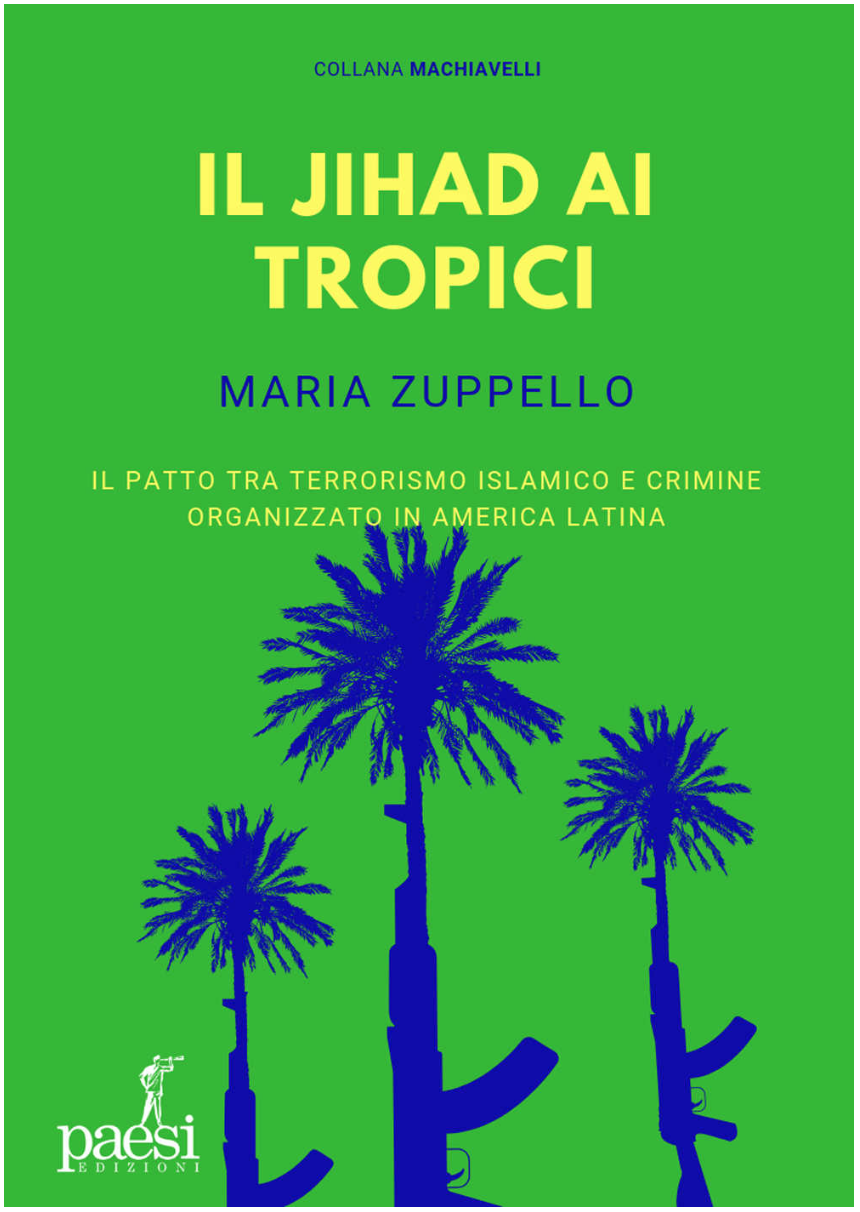Ruta de navegación
Menú de navegación
Blogs
Entries with label triple frontier .
[Maria Zuppello, Il Jihad ai Tropici. Il patto tra terrorismo islamico e crimine organizzato in America Latina. Paese Edizioni. Roma, 2019. 215 p.]
review / Emili J. Blasco
 We usually link jihad to the Middle East. If anything, also with the African Sachel, opening the map to the West, or with the border of Afghanistan, Pakistan and India, opening it to the East. However, Latin America also has a place in this geography. It has a place to finance the terrorist struggle - cocaine is a business that Islamists take advantage of, as is the case with heroin in the specific case of the Taliban - and also as a space in which to go unnoticed, off the radar (Caribbean or Brazilian beaches are the last place that would be imagined as a hiding place for jihadists).
We usually link jihad to the Middle East. If anything, also with the African Sachel, opening the map to the West, or with the border of Afghanistan, Pakistan and India, opening it to the East. However, Latin America also has a place in this geography. It has a place to finance the terrorist struggle - cocaine is a business that Islamists take advantage of, as is the case with heroin in the specific case of the Taliban - and also as a space in which to go unnoticed, off the radar (Caribbean or Brazilian beaches are the last place that would be imagined as a hiding place for jihadists).
Jihad in the Tropics, by Italian researcher Maria Zuppello, deals precisely with that lesser-known aspect of global jihadism: the caipirinha jihadists, to put it graphically, to emphasise the normality with which these radicalised elements live in the Latin American context, although these are criminal networks more sinister than the name might suggest.
Zuppello's research , which is subtitled "the pact between Islamic terrorism and organised crime in Latin America", deals with various countries, although it is in Brazil where the author locates the main connections with the rest of the region and with the international Structures of different jihadist groups. In particular, she points out the link between the religious leader Imran Hosein, who propagates Salafist doctrines, and the attack on the Bataclan party conference room in Paris, as his preaching was particularly responsible for the radicalisation of one of the terrorists, Samy Amimour. Zuppello also analyses the cross-contacts of the Brazilians who were arrested in 2016 in the Hashtag operation, in the final stretch of the preparation for the Rio de Janeiro Olympic Games.
Zuppello's book begins with a presentation at position by Emanuele Ottolenghi, researcher who works at the Foundation for Defense of Democracies, a Washington think tank. Ottolenghi is an expert on Hezbollah's presence in Latin America, on which he has written numerous articles.
At presentation, Ottolenghi highlights the partnership established between jihadist elements and certain levels of the Latin American left, especially the Bolivarian left. "The extremist messages differ little from the rhetoric of the radical left's anti-imperialist revolution, deeply rooted for decades in Latin America", he argues. This explains "the appeal of the Islamic revolution to the descendants of the Incas in the remote Andean community of Abancay, a four-hour drive from Machu Picchu, and to Cuban and Salvadoran revolutionaries (now dedicated to spreading Khomeini's word in Central America)".
For Ottolenghi, "the central topic of the red-green alliance between Bolivarians and Islamists is the so-called resistance to US imperialism. Behind this revolutionary rhetoric, however, there is more. The creation of a strategic alliance between Tehran and Caracas has opened the door to Latin America for the Iranian Revolutionary Guards and Hezbollah. Venezuela has become a hub for Iran's agents in the region".
Illicit trafficking generates millions in dirty money that is laundered through international circuits. The "Lebanese diaspora communities" in areas such as La Guaira (between Venezuela and Colombia), Margarita Island (Venezuela), the free trade zone of Colón (Panama) and the Triple Border (between Brazil, Paraguay and Argentina) are important in this process.
It is precisely this tri-border area that has been the usual place to refer to when talking about Hezbollah in Latin America. The 1992 and 1994 attacks in Buenos Aires against the Israeli Embassy and the AMIA, respectively, had their operational origins there, and since then the financial links of this geographical corner with the Shiite extremist group have been frequently documented. Since Hugo Chávez came to power, there has been a convergence between Venezuela and Iran that has allowed Islamist radicals to obtain Venezuelan passports, and they have also been taking over part of the drug trafficking business as Chávez himself has drawn the Venezuelan state into the cocaine business.
The convergence of interests between organised crime networks in the region and jihadist elements raises the question, according to Zuppello, of whether "Latin America will end up being the new cash machine for the financing of global jihad", or even "something else: a hideout for fleeing foreign fighters or a new platform for attacks, or both".
One of the specific aspects Zuppello refers to is the halal sector and its certifications, which is growing exponentially, causing concern among counter-terrorism authorities in several countries, who accuse the sector of concealing terrorist financing and money laundering. The halal meat trade has provided cover for dozens of Iranian meat inspectors, who have taken up permanent residence in the region.
Research such as that carried out in Jihad in the Tropics has led to a number of Latin American countries agreeing for the first time in 2019 to recognise Hezbollah as a terrorist organisation group .
